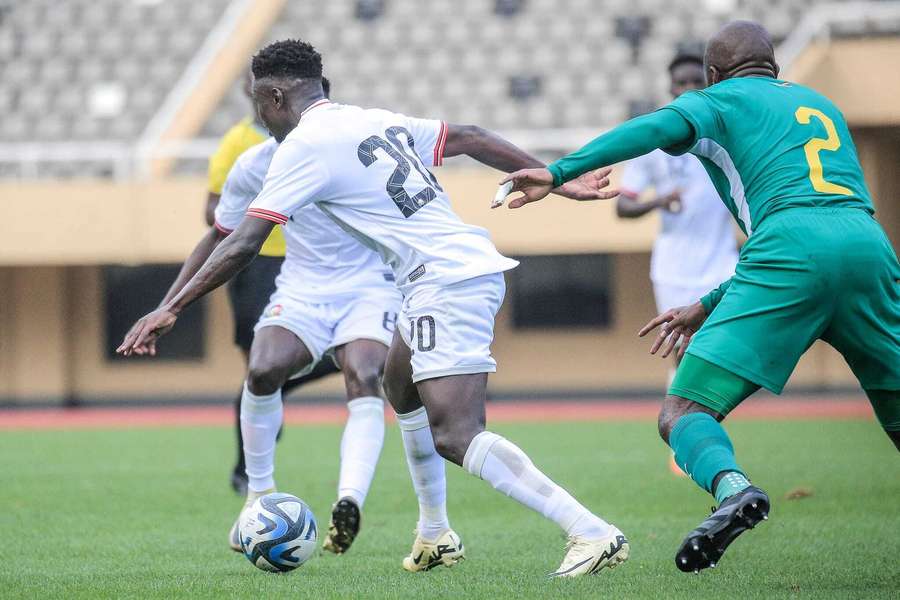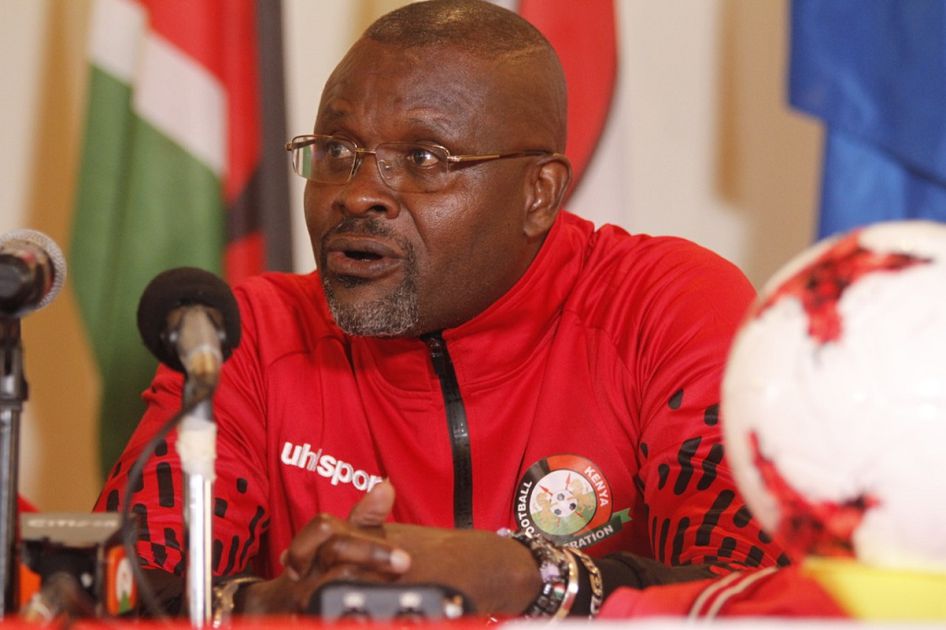Jacob ‘Ghost’ Mulee, former Harambee Stars coach, has raised concerns over the tactics employed by current coach Engin Firat following Kenya’s goalless draw against Zimbabwe in the 2025 Africa Cup of Nations (AFCON) qualifiers. In a match that many felt Kenya should have won, Firat’s decision to bench all three of his natural strikers—Jonah Ayunga, Benson Omalla, and Ovella Ochieng Avire—has been met with widespread criticism. According to Mulee, the lack of a clear goal threat cost Kenya a valuable opportunity to secure three points.
Kenya’s Missed Opportunity Against Zimbabwe
The match, which took place in Uganda due to logistical issues in Kenya, saw Harambee Stars struggle to find the back of the net despite creating several chances. Zimbabwe, on the other hand, were content to sit back and absorb pressure, leaving Kenya frustrated with their inability to break the deadlock.
Mulee, who has coached Kenya in multiple international tournaments, expressed his dissatisfaction with how the team was set up, stating that Kenya missed a chance to gain crucial points in their AFCON qualifying campaign. “It felt like two points dropped, not one gained,” Mulee remarked, reflecting the sentiments of many Kenyan fans who had higher expectations from the fixture.
Firat’s Decision to Bench Strikers: A Controversial Move
One of the most debated aspects of the match was Firat’s decision to leave all three strikers on the bench. Instead of fielding a natural striker, the coach opted to start Duke Abuya, an attacking midfielder, in the role of a forward. Mulee believes this decision severely limited Kenya’s attacking options.
“We lacked a predator in front of goal,” Mulee said, criticizing Firat’s tactical approach. “Duke Abuya is a talented player, but he is not a natural striker. His strengths lie in playing behind the forward, creating chances, not finishing them.”
Mulee went on to question why players like Ayunga, Omalla, and Avire, who are all proven goal-scorers, were not given the opportunity to lead the line. “These are players who know how to find the back of the net. Not using them in a game like this was a big mistake,” Mulee added.
Kenya’s Attacking Struggles: No Clear Route to Goal
Throughout the match, Harambee Stars struggled to create clear-cut chances. The team’s lack of attacking intent was evident as Zimbabwe comfortably dealt with Kenya’s offensive efforts. Without a recognized striker, Kenya lacked a focal point in attack, and Firat’s decision to play without one left the team without a clear route to goal.
Mulee highlighted the issue, saying, “We didn’t have the bite in front of goal. I don’t think we were going to score at any point with the formation we used.” He further emphasized the need for a natural finisher, noting that even when Kenya managed to get into promising positions, there was no one capable of converting those opportunities.
The veteran coach also pointed out that Firat’s decision to play players out of position, particularly Abuya as a striker, was a significant factor in Kenya’s failure to score. “It’s difficult to expect someone like Abuya, who is used to playing behind the striker, to suddenly become the main goal-scoring threat. A natural striker would have known how to make the runs and finish those chances,” Mulee said.
Ghost Mulee’s Tactical Criticism of Firat
While Mulee stopped short of completely condemning Firat’s tactics, he made it clear that the approach taken by the coach was not one he would have employed. “As a coach, I would not play like that without an out-and-out striker,” he explained. “We have players like Omalla, Avire, and Ayunga who have been playing as strikers and know how to score. They should have been on the field.”
Mulee’s criticism wasn’t just limited to the lack of a striker. He also questioned the overall formation and game plan used by Firat, suggesting that Kenya needed to be more adventurous and brave in their approach to the game. “We weren’t brave enough in our tactics,” he said. “Zimbabwe were there for the taking, but we didn’t do enough to break them down.”

Kenyan Fans Express Disappointment with the Result
Kenyan fans, many of whom were expecting a more aggressive and attacking performance, were left frustrated by the team’s inability to secure a win. On social media, fans voiced their disappointment with the tactics, echoing Mulee’s sentiments that the decision to bench the strikers was a costly one.
Several fans pointed out that Zimbabwe had come into the match on the back of inconsistent form, and Kenya should have capitalized on the opportunity to secure all three points. For many, the result felt like a missed opportunity that could hurt Kenya’s chances of qualifying for AFCON 2025.
What Does This Draw Mean for Harambee Stars?
The draw against Zimbabwe puts Kenya in a challenging position in Group J of the AFCON qualifiers. While it is still early in the campaign, dropping points in matches where Kenya were expected to win could make qualification more difficult. The team will need to regroup quickly and make tactical adjustments if they are to stay on track for a place at the 2025 Africa Cup of Nations.
For Firat, the pressure is mounting. The Turkish tactician has faced criticism in the past for his unconventional tactics, and the result against Zimbabwe has only intensified calls for a more straightforward approach. Firat’s decision-making will be under close scrutiny in the upcoming matches, as fans and pundits alike will be eager to see if he can turn things around.
Conclusion: A Tactical Lesson for Firat
Jacob ‘Ghost’ Mulee’s critique of Firat’s tactics highlights a broader concern about the direction of Harambee Stars under the current coach. While Firat has had success with his unorthodox methods in the past, the lack of a clear attacking strategy in the match against Zimbabwe raises questions about his tactical flexibility.
Kenya’s draw felt more like a defeat, and as Mulee pointed out, the absence of a natural striker was a glaring mistake. Moving forward, Firat will need to address these tactical concerns and ensure that his team is better equipped to find the back of the net in future matches. If Kenya is to achieve their goal of qualifying for AFCON 2025, adjustments must be made quickly to avoid further setbacks.


